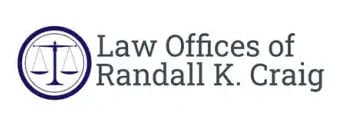JUNE 2016
CURRENT ISSUES IN THE AREAS OF ESTATE, TAX
AND PERSONAL AND BUSINESS PLANNING
The information that follows summarizes some of the current issues in the areas of estate, tax and personal and business planning which may be of interest to you. Although this information is accurate and authoritative, it is general in nature and not intended to constitute specific professional advice. For professional advice or more specific information, please contact my office.
Business Succession. Most businesses and professional practices will eventually confront the problem of planning for the future of the business when the principal retires. The goal will generally be to maximize the value of the business to the owner and the owner’s family as well as to provide for the successful operation of the business far into the future. The first step is to determine what your goals are, and whether you have a more immediate need, such as planning for the possibility that ill health or premature death will adversely impact your business. You also need to contemplate how the ownership or the control of the business may change, perhaps years into the future, when you are ready to “hang it up.” Some aspects of succession planning may be tax motivated, i.e., planning to implement an arrangement which will have the least significant tax impact, or it may be more retirement related, such as maximizing your retirement or investment income after the business transition. Every person’s goals and objectives will be to a certain extent unique, and the plan implemented must be tailored to the particular situation. Some issues can be addressed through insurance, such as insurance that will provide the funding necessary in the event of the owner’s disability or death, and it may involve developing certain key employees who at the very least can take over certain management functions in the event of death or disability while the business might be groomed for sale. Some of the key employees might even be family members, in which event the succession plan may involve passing the business down to succeeding generations in one of various alternative ways. The starting point is to anticipate the problems that can result and to begin to contemplate your future. Implementing a business succession plan frequently takes a significant amount of time, and so getting started is the first and most important step.
SWIRCA’s New Resource Linkage Program. SWIRCA & More has recently implemented a new program called Resource Linkage, which will help family members and others as they care for their aging parents and loved ones. With the assistance of a Care Coordinator, the Resource Linkage program helps to ensure that your loved one is receiving the assistance needed to live a safe and enriched life. Care Coordinators meet with the person and their family in their own home and conduct a confidential, comprehensive assessment to identify concerns and provide service recommendations. The Care Coordinator can review diagnoses, perform a medication reconciliation, conduct a “risk of fall” assessment, observe how the person is managing daily activities in the home, and conduct a home safety assessment. A written care plan will provide the family with enough information to feel confident that the care givers are making the best decisions for their loved one. The family chooses the service providers and the Care Coordinator can help to coordinate and monitor those services. The Care Coordinator is essentially a liaison between the individual, family, and health care professionals. SWIRCA & More can provide both short and long term assistance to families, whether near or far, quickly alerting families to urgent situations or everyday well-being updates. The goal of a Care Coordinator is to help people remain in their own home as long as possible, delaying or avoiding nursing home placement. The Care Coordinator can be an advocate as well as constitute “boots on the ground” for individuals and families who are able to privately fund the needed services. If you are interested in learning more about the Resource Linkage program, contact SWIRCA & More at (812)-464-7800.
Why Not Leave Assets Outright to a Beneficiary? There are many reasons why an individual may want certain beneficiaries to receive a gift or inheritance through a trust or similar arrangement, such as: (i) minors or those under legal disabilities; (ii) beneficiaries who cannot handle money, who might be “spendthrifts,” or who have drug or alcohol problems, and whom the client wishes to protect; (iii) beneficiaries who are receiving or may receive public assistance and for whom some portion of the gift or inheritance might be subject to repayment or recoupment; (iv) beneficiaries with potential marital problems or concerns; and (v) beneficiaries who have significant debts. Trusts will often provide the most protection. A trust arrangement can last for a long time, certainly throughout the life of a beneficiary. It can also build in certain protections which might help the beneficiary overcome issues relating to financial or marital instability, special needs or disability issues, and similar concerns. If a trust is not warranted because of the potential complexity of the trust or because the gift or inheritance might be too small in value, there may be an alternative arrangement, such as a custodial arrangement under a Uniform Gifts or Transfers to Minors Act, in which event, in the case of a younger beneficiary, the interest can be held in a “quasi trust” until the age of 21 (or in some states until the age of 25). An incapacitated beneficiary might have his or her gift or inheritance held by a custodian under the Uniform Custodial Trust Act. Making a gift or leaving an inheritance to a beneficiary who may need protection, without invoking the protective arrangements which are available, may result in an unanticipated or unnecessary loss of the benefits that were intended, or the benefits might be wasted or improperly utilized. People should consider the impact that a gift or inheritance will have on a beneficiary before setting up arrangements for them.

